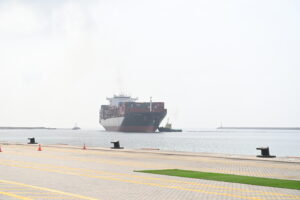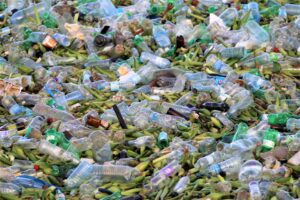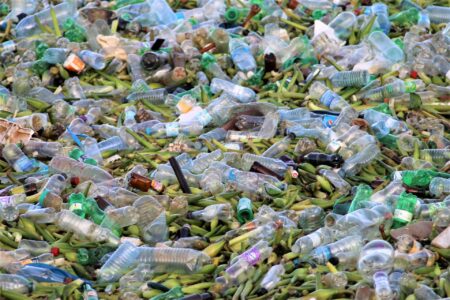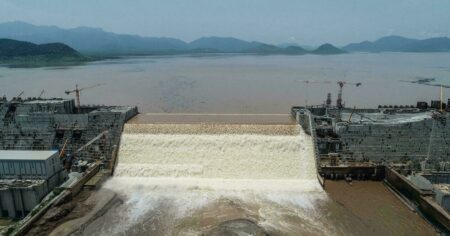- As COP29 starts in Baku, Azerbaijan, African nations are set to drive the climate agenda, focusing on climate finance and redefining economic metrics to recognize the continent’s green assets.
- Africa’s ‘green wealth’ push seeks to quantify Africa’s contributions to global environmental health, valuing its vast carbon sinks, natural resources, and ecosystems.
- This initiative, led by the AfDB in an alliance with the Republic of Congo and Kenya, could reshape Africa’s economic standing.
The annual United Nations climate conference, COP29, opens with a strong emphasis on climate finance, especially for developing nations that bear a disproportionate burden of climate change impacts.
At the forefront, African nations are pushing for increased funding and support, which is essential to advancing their National Adaptation Plans and Nationally Determined Contributions as outlined in the Paris Agreement.
This year, Africa, represented by the African Development Bank (AfDB) and a coalition of governments, is seeking increased funding and introducing a fresh initiative to redefine African economies based on their “green wealth.”
This approach seeks to quantify Africa’s contributions to global environmental health, valuing its vast carbon sinks, natural resources, and ecosystems.
“Africa should be greenly wealthy by proper valuation of its vast contributions to global environmental services,” says AfDB President Akinwumi Adesina. “There is no reason why Africa should be greenly poor,” he added, underscoring the potential of recalibrating GDP metrics to reflect natural assets that absorb carbon and support biodiversity.
Rethinking GDP: Measuring Africa’s green wealth
One of the most defining proposals at COP29 is “Measuring the Green Wealth of Africa,” which aims to recalibrate the continent’s GDP by incorporating natural capital such as forests, biodiversity, and carbon sinks.
This initiative, led by the AfDB in partnership with the Republic of Congo and Kenya, could reshape Africa’s economic standing, enabling it to leverage resources for sustainable development better.
According to AfDB estimates, recalculating GDP to reflect green assets could have added $66.1 billion to Africa’s nominal GDP in 2022 alone, boosting the continent’s economic output by about 2.2 per cent.
The six Congo Basin countries—Cameroon, Central African Republic, DRC, Republic of Congo, Equatorial Guinea, and Gabon—accounted for nearly 64 per cent of this increase, highlighting key environmental contributions from Africa’s rainforests and wetlands.
“If we can accurately account for Africa’s green wealth, it could mean greater financial flexibility to invest in climate-resilient infrastructure and sustainable development,” Adesina noted.
The recalibration could also increase Africa’s borrowing capacity and investment headroom, enhancing debt sustainability by offering a more accurate measure of the continent’s economic health and potential.
Bridging the climate finance gap
Africa’s contribution to global environmental health starkly contrasts its access to climate financing. Although sub-Saharan Africa is home to some of the most climate-vulnerable nations, it receives less than 3 per cent of global climate funds.
This disparity is a key issue on the COP29 agenda as African leaders, alongside international allies, work to secure fairer financial commitments.
The AfDB’s Climate Action Window, a key initiative designed to address this funding gap, will host a session on Wednesday, November 13, to explore ways of unlocking climate finance for Africa’s vulnerable communities.
The Climate Action Window was established under the 16th replenishment of the African Development Fund and aims to bridge Africa’s estimated $41 billion annual climate finance gap.
“Ensuring that Africa receives a fair share of global climate finance is not only about justice but about enabling solutions that benefit the entire planet,” Adesina emphasized. By redirecting funds toward Africa’s mitigation and adaptation projects, global efforts to combat climate change could become more effective and equitable.
High-level events: Clean energy and sustainable cooking
With COP29 dubbed the “Finance COP,” Africa’s goals include ensuring access to clean energy and promoting sustainable cooking methods. The AfDB’s “Mission 300” program is one initiative aimed at achieving these targets.
In collaboration with the World Bank and other partners, Mission 300 seeks to connect 300 million Africans to reliable electricity by 2030, creating pathways for sustainable development across the continent.
Additionally, the African Union and the government of Tanzania are hosting a high-level side event focused on “Addressing Clean Cooking Challenges in Africa.”
Nearly 900 million people in sub-Saharan Africa lack access to clean cooking options, leading to health, environmental, and social challenges. This session underscores the need for innovative partnerships and political leadership to mobilize funding and implement sustainable cooking solutions.
“We cannot overlook the human impact of climate change—health, food security, and sustainable livelihoods depend on clean energy solutions,” said one African Union representative.
Addressing Africa’s clean cooking crisis will require a significant resource, investment, and mindset shift to provide accessible, safe, and affordable cooking methods.
Read also: Climate crisis: Why Africa needs urgent, scalable plan for a resilient future
The role of global partners in Africa’s climate goals
As African leaders present their climate finance proposals at COP29, they face convincing global partners of Africa’s readiness to effectively manage and deploy increased funds. The new Loss and Damage Fund, established at COP28, set a precedent for acknowledging climate-linked destruction.
African nations hope to build on this by securing dedicated funds for adaptation and resilience projects in regions facing the highest climate risks.
In this regard, international partners such as the US, European Union, and major development banks are expected to engage in negotiations to increase financial commitments.
Africa’s leadership hopes that by presenting a compelling case for green wealth and its economic recalibration, they can inspire confidence in the global community to contribute meaningfully.
For instance, the AfDB has introduced stringent accountability measures for fund deployment, ensuring climate financing aligns with donor expectations and African development priorities. Such measures foster trust, setting a solid foundation for partnerships focused on resilience, adaptation, and sustainable growth.
Read also: Can Africa’s fragmented voice find unity at COP29 climate finance talks?
COP29: A platform for Africa’s climate leadership
COP29 is a critical week for African nations to assert their vision of climate resilience and sustainable development. As the global community confronts the realities of climate change, Africa’s contributions through natural carbon sequestration and biodiversity preservation are increasingly valuable to the planet’s well-being.
The AfDB’s initiatives, including the “Measuring the Green Wealth of Africa” framework, could lay the groundwork for a paradigm shift in how the world values environmental assets.
If widely adopted, this redefined economic model could offer a transformative approach to financing not just for Africa but for any region rich in natural resources.
“Africa’s leadership on these issues is a testament to the continent’s readiness to be a global partner in addressing climate change,” AfDB President Adesina commented. “We are not just seeking aid; we are demonstrating our value and capacity to lead the green revolution.”
A new chapter for climate justice
As COP29 unfolds, African nations seem poised to challenge existing structures and demand a fairer system recognizing their contributions and vulnerabilities.
The AfDB’s work championing green wealth accounting and unlocking climate finance could redefine the continent’s place in global climate discussions, making it move from a passive recipient to an active and essential partner in climate solutions.
Africa’s leaders are optimistic that this year’s conference will mark a new chapter in climate justice and that climate resilience must be built with an appreciation of the resources Africa already provides.
As COP29 progresses this week, the world watches to see how Africa’s innovative proposals on green wealth accounting and climate finance might reshape global climate policy.
Overall, whether the international community will respond with the necessary urgency remains to be seen, but Africa’s message appears clear: climate justice, green wealth, and sustainable growth go hand in hand, and the time to act is now.











